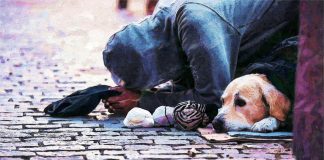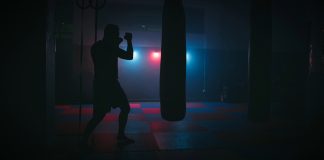The kind of romance that destroys our relationships
Twenty-first century people are bombarded with fiction about romance.
Staring death in the eye
"In films you often get dying words – someone gasping out things like 'Please tell Jim I love him', which sort of makes me laugh. I've never seen that happen," says psychologist Lesley Fallowfield, highlighting the discrepancy between how people usually die and our misperception of how life ends. Not only is the transition from life to death usually slow, involving a period...
Remember to rest
Sunday afternoons were a sacrosanct time when I was growing up in Argentina. Everything seemed to quiet and slow down between 2:00 and 5:00 pm, during siesta. Even shops would shut. All you could hear was the sound of the cicadas as the whole neighbourhood took a nap. Young and old, rich and poor were unified by this wonderful tradition. At least, I...
Having the courage to be a stepparent
In the whole array of virtues that a stepparent must possess in order to succeed in raising a well-rounded child whose world has been shattered by the separation of his or her parents, courage is only mentioned in passing. Yet courage is the foundation of a construction that promises to be challenging from the outset, say those who have plunged into the role...
People get ready
The song, “People Get Ready” was inspired by Martin Luther King Jr’s march on Washington and his “I have a dream” speech. In writing it the following year (1964), Curtis Mayfield not only captured the spirit of the march but created a song that caught the mood of the times and injected hope: “There’s a train a-comin’… . You don’t need no ticket,...
The empathy recession
"Life is hard," my three-year-old niece says with conviction, while munching on a biscuit. "But it's beautiful," her mother quickly corrects her. "No, no, life is hard," the little girl insists. For parents, this is of course a funny scene to share with friends on Facebook. However, ironically, right under the posted video is a clip of a televised debate between an anti-vaccine...
Stories and life lessons from the bridge of suicides
For 23 years, every working day, Kevin Briggs went to work knowing that someone might try to end their life right in front of him. What can you say or do for a person standing on the edge of a bridge, ready to jump?
What’s growing on your family tree?
From a distance, it looked like a simple picture of a tree: nothing very artistic—more of a sketch in subtle shades of brown and green. But as I looked closer I noticed something unusual. The tree had been constructed out of words and phrases. Someone had collected snippets of information about their family and their ancestors, and written it down to form the...
Cut from a different cloth
When I look at the lives of some people, I can't help but wonder if they are cut from a different cloth to most of us. Their courage in the face of challenges, their resilience, their vision and their achievements are so impressive that my imagination wonders what the world would look like if their passion were multiplied.
Are you better than you think?
Well, yes, we are, according to Rutger Bregman, author of Human Kind. Early in his book he introduces us to Tom Postmes, professor of social psychology at the University of Groningen who, every year, asks students the same question. “Imagine an aeroplane makes an emergency landing and breaks into three parts. As the cabin fills with smoke, everybody inside realises: We’ve got to...
Unhappiness derived from the power of choice
Walk into any shop and you will find yourself having to choose between not only hundreds of different products but even numerous varieties of a single product. You have two choices: settle for something good or search for the perfect choice. One of these choices will make you unhappy.
“I am because we are” | Dignity in fellowship
Nelson Mandela, one of the most iconic figures in the fight against apartheid—the system of racial segregation enforced by South Africa’s white minority government—spent 27 years in prison for his commitment to dignity, equality, and justice.
A brief history of the freedom of speech
“If you say to me, 'Socrates... you shall be let off, but upon one condition, that you are not to enquire and speculate in this way any more, and that if you are caught doing so again you shall die'; if this was the condition on which you let me go, I should reply: 'Men of Athens, I honour and love you; but...
Visible and invisible chains
"Man is born free but everywhere is in chains." (Jean-Jacques Rousseau)
The Dunghutti Destroyer and the fight of his life
Renold Vatubua Quinlan is a “proud Dunghutti man” with Fijian heritage. He grew up on the mid-north coast of New South Wales around Port Macquarie and Kempsey. Known as the Dunghutti Destroyer, Quinlan is a professional boxer who held the IBO super-middle weight title from 2016 to 2017. “My biggest experience in my life was winning the world title,” he said.


























